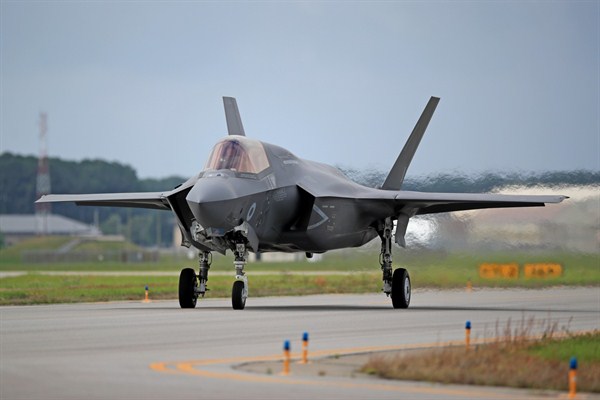On July 17, the U.S. announced that it had terminated Turkey’s participation in the F-35 fighter jet program, five days after Ankara took delivery of components for four batteries of Russian S-400 air defense systems that Turkey purchased in 2017. The systems will not be assembled and operational until the fall, but in receiving the first shipment, Turkey ignored repeated warnings from Washington that it considered the presence of the S-400 to be incompatible with operating the F-35.
The Trump administration gave several reasons for the suspension: the intelligence risk posed by the presence of an advanced Russian data-collection platform in a NATO country; Turkey’s refusal to accept a Western air defense system as an alternative; and the damage to NATO interoperability resulting from the deployment of a non-Western weapon system by a member state.
Canceling Turkey’s planned purchase of more than 100 F-35s, as well as its participation in the production of many of the plane’s major components, is justified. Nonetheless, the United States needs to contain the damage to bilateral relations by eschewing additional harsh sanctions on Turkey, while also drawing the proper conclusions from the current dispute to avoid overinvestment in the F-35 program.

